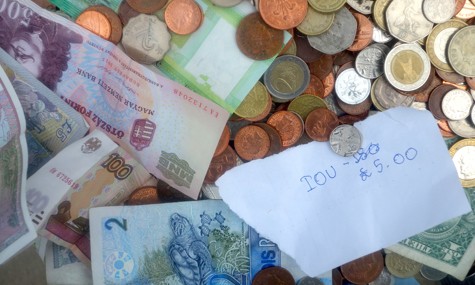NEF Blog: What is the value of Bitcoin?
Now four years old, Bitcoin is the celebrity of the complementary currencies world. It is currently trading at over $800 after two US senate committee fact-finding sessions heard last week. Political opinion is still divided, but for those investing in Bitcoin as an asset, any government recognition is good news.
It perhaps says more about the media than Bitcoin that coverage so far has focused on the illicit use of Bitcoins to buy drugs, guns or hitmen. Last week, both at the US senate hearing and at a Chatham House event here in London, general opinion was that Bitcoin is a long way off from overtaking cash in terms of turnover, and for its involvement in unlawful dealings.
What Bitcoin is unquestionably good at is posing new questions and prototyping radical new peer-to-peer payment solutions. As with globalisation, or the internet, it seems impossible to prune out the unwanted consequences of Bitcoin without compromising the unique opportunities it offers.
In the end it comes down to people and their behaviours. The majority of current Bitcoin bidders do not share the political stance of many early adopters. Today, the air of lauding Bitcoin as a way to challenge the dominance of standard money through a pervasive, decentralised and, arguably, democratic network, has given way to a speculative market bubbling up – with no one likely to buy a pizza with Bitcoin until the current virtual gold-rush is over. Just as with conventional money, the store of value function and medium of exchange function are mutually exclusive: in other words, what gets horded as an asset will not get spent into the real economy, where actual value is created.
So is Bitcoin a currency, a payment system, or an asset? The one certainty at the moment is that these lines are blurred, and regulators as well as academics struggle to keep up with the ever-innovating world of complementary currencies. The difficulty in pinning a definition – or intrinsic value – onto Bitcoin leads us to ask some more fundamental questions – like what do we mean by “currency” or “payment system” anyway? And since they are social technologies and not natural phenomena: what do we want them to achieve?
Clarity on these terms is required not only for the sake of regulating Bitcoin, but for the thousands of other, mostly local, currency prototypes in existence today. These are being designed and deployed for positive economic impact in their communities and are at risk of being drowned in or thrown out with the Bitcoin bathwater.
nef has a long history of advocating and supporting the use of such currencies for the benefit of local communities and SMEs across Europe, most recently with our Community Currencies in Action project. The challenge can often seem daunting. But we were reassured at last week’s Chatham house event when fellow speaker Chris Salmon, Chief Cashier of the Bank of England, acknowledged the role of currencies like the Bristol Pound, in allowing people to “express trust in and loyalty to their local community”.
Further afield, other currency projects have already succeeded in getting legislator’s full approval: Banco Palmas currencies in Brazil, now in over 100 communities across the country, have been approved by the Central Bank because they deliver social finance needs not met by the market. Business-to-Business trade exchanges in the US have long established clear processes with the tax authorities. And most recently the Bangla-Pesa operating in a township near Mombassa, Kenya, relaunched this weekend cleared of all charges after police had hastily closed the scheme earlier in the year. Our ambition is to avoid similar cases closer to home and elsewhere by engaging with regulators, even with such seemingly simple questions like: what is money? And, indeed, where does it come from?
Under our current monetary system we participate as consumers with no say in either the production or allocation of new money, both of which are monopolised by private banks underwritten by the state. Rethinking money gives us the opportunity to have a greater democratic say in such processes, not just as consumers but as neighbours and as citizens.
Bitcoin is valuable as a backbone technology. It has brought some of the relevant questions about the nature of currency, money and their governance into the public debate, with community currencies well-placed to deliver meaningful answers.
This article was first published on the NEF website on November 26th, 2013.
